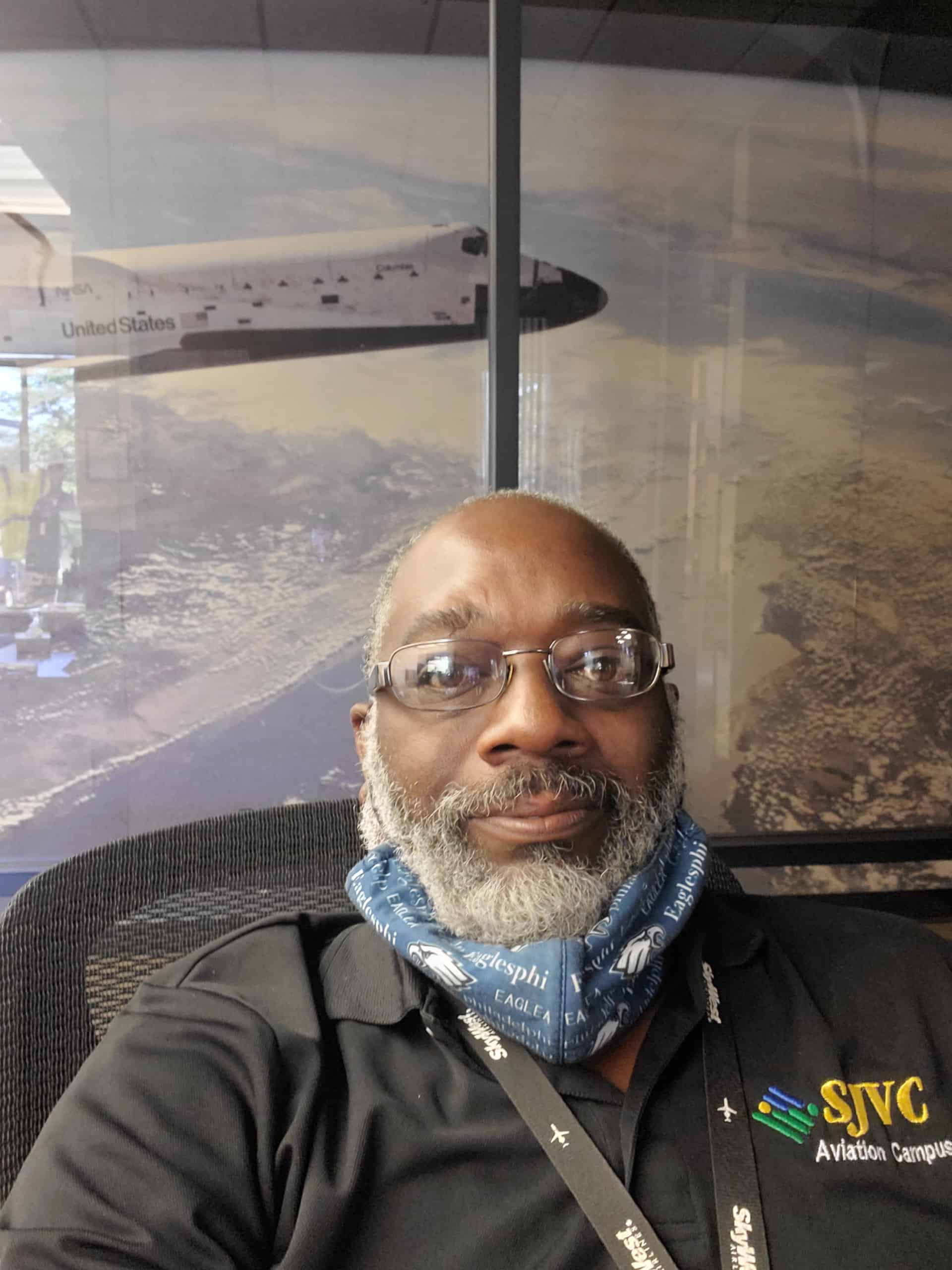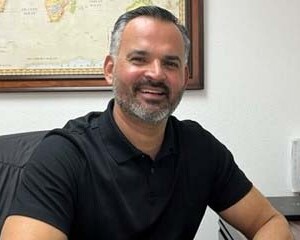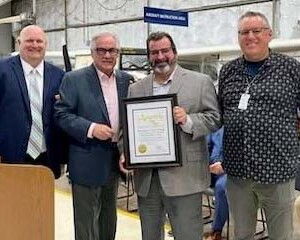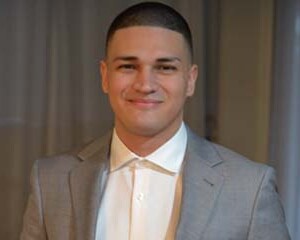Aviation Maintenance Tech career choices cover a wide range
 Before he was lead faculty member for SJVC’s Aviation Maintenance Technology (AMT) program at the Trades Educational Center (TEC) in Fresno, Jerome Gay spent over 20-years in a variety of aircraft maintenance positions. He understands the many specialty areas and opportunities that appropriate education and training will invite.
Before he was lead faculty member for SJVC’s Aviation Maintenance Technology (AMT) program at the Trades Educational Center (TEC) in Fresno, Jerome Gay spent over 20-years in a variety of aircraft maintenance positions. He understands the many specialty areas and opportunities that appropriate education and training will invite.
Jerome is also a graduate of the very AMT program he now teaches. He knows firsthand how the AMT program’s curriculum, classroom and hands-on experiences, student support, and certification process boost AMT students’ and graduates’ success.
What kinds of aircraft mechanic jobs are out there for AMT graduates?
General aviation working with small private planes could include work on the entire aircraft that including annual inspections for safety to general maintenance i.e., changing tires, servicing engines and any airframe repairs.
Some of my own aircraft work experience includes building batteries and other accessories for airplanes, working with hydraulic systems, fuel systems, wheels, brakes and machine work. I was a harness and electronics technician, shop supervisor and worked in quality control.
How does the AMT program’s education and training play in the real world of aircraft mechanic jobs?
Our AMT program is generalized, and graduates are not going to leave here a specialist. The certification our students earn tells future employers that they have the ability to learn and do their job within the requirements of the FAA (Federal Aviation Administration).
What I reinforce to our students is that they will have the knowledge of a huge expanse of career possibilities and the confidence in their ability to learn the job specifics. This will definitely open the door for anything.
What brings most of these AMT students to your classroom?
I know for sure – and it was one of my driving forces as well (when choosing AMT education/training) – it is the accelerated program. They can earn an AS Degree (Associate of Science) in as few as 22months and can complete the certificate of completion program in as few as 17-months.
I tell them ‘Be willing to work hard and you will learn a lot. It definitely opens the doors to a lot of opportunities. And that will take you to where you would like to work – even outside the aviation industry.
Do you have to be a really good student to move through the program that quickly?
They (AMT students) take many mini tests throughout the course so that they understand what these main tests will be like. It is important to take good notes, ask questions and develop good study habits. It does demand some discipline.
It’s an intense course and I like to tell them, ‘All of us can eat an elephant – you just have to eat it one small bite at a time’.
Do the most academically successful students get the best jobs in aviation?
We’re surprised all the time. There are students who were not ideal (study habits) but ended up being great employees in this industry. How they handled themselves with their studies may be very different from how they handle themselves out there in their careers. Their employer is happy with their work and, they’re happy. We don’t always know they ‘have it’ but are glad it all came together.
Some students are better prepared. We have a lot of ex-military and some have been doing some portion of this job. But the military does not offer license or certification so that they could go out and work in the commercial world. Their experience gives them a better sense of what they are choosing to do (as a career).
We also have more females in our AMT program now – many from the military who became interested in being aircraft mechanics there.
What should students expect to learn in their AMT program?
We have three different areas of study and at least a couple of instructors covering each of those areas: General: where students are taught basic physics, math and corrosion control. The second part of the program is Airframe: how flight control surfaces function, how to do sheet metal and composite repairs and work on landing gear. Then, PowerPlant: The theory and operation of reciprocating engines, turbine engines and propellers – plus sub-systems in those three major categories.
When students first walk through our doors, they get the general part of the program taken care of, then pass that program. Then they move to either Airframe or PowerPlant (then switch). It is an explicit process and students are being tested for mastery of skills, as they progress through the course.
What is a major attraction for your AMT program students?
What clicked for me when I was an AMT student is that I was going to get to work with my hands. I used to always work on cars with my friends, so this seemed like a good career option. It’s the same for many of our students. They really like the hands-on aspect of learning and the direct connection with instructors. If they have questions, answers can be shown to them right then. (Much of students’ hands-on work takes place in the program’s hangar, which is well stocked with aircraft parts, equipment, machinery and tools.)
There are some students here who had never touched a wrench before. But if they commit to this program, they can elevate themselves. And if they have that commitment, I will support them.
What do you enjoy most in your teaching role in the AMT program?
My favorite time is when I’m face-to-face with a student and I see their eyeballs light up. They were struggling for understanding, I’m trying to make that connection, and they have that ‘ah-hah’ moment. You can physically see it in their face when that happens.
I come from a long line of teachers and without realizing it, that’s what I’d been doing over the years at my jobs. It comes naturally. Somebody was nice enough to pass down this information to me; why would I want to keep it from anybody else?
What is one of the most important messages you hope to give your students?
I want them to have the confidence of being able to perform their job. We can’t teach them everything every employer is looking for; you can’t prepare for every scenario. What I reinforce is the basics of a huge expanse of possibilities. Apply what they know and have the ability to learn the job with its specificity.
You might also like
More stories about
Request Information
All fields using an asterik (*) are required.


